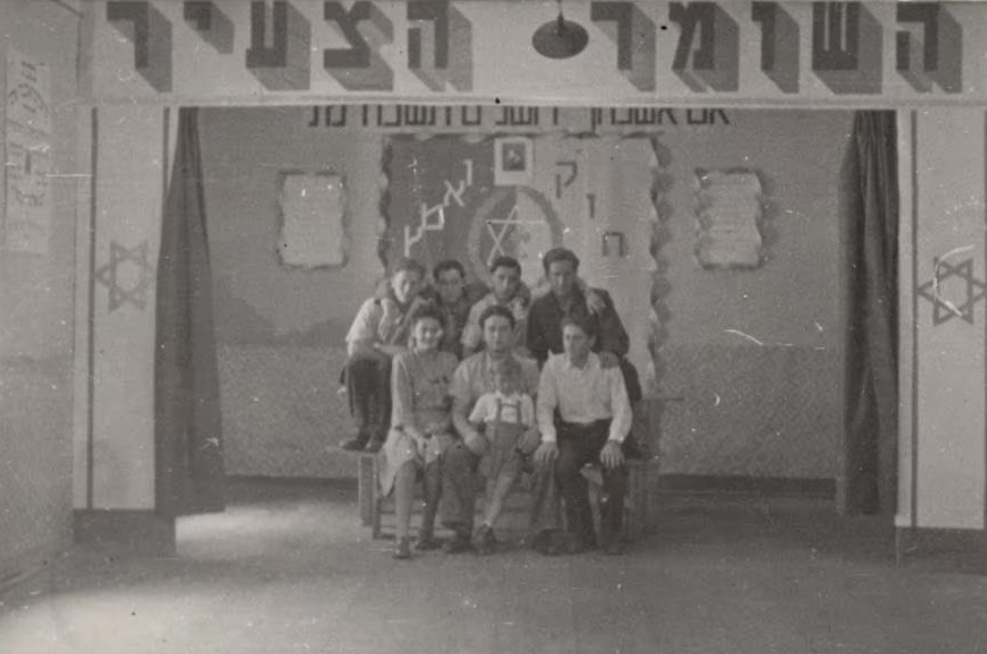Between 1941 and 1945, around eighty members of my family were murdered for the crime of being Jewish. At least a dozen (likely more) were killed at Auschwitz. Others were killed at the lesser-known but proportionally even deadlier extermination camp at Sobibor; many were simply shot or killed through some other means and buried in mass graves. They were among 6million people – including 1.5million children – slaughtered at thousands of sites across Europe.
There is an understandable tendency to want to understand the Holocaust as a moment of madness in human history in which man’s capacity for inhumanity towards man was made apparent. We naturally want to make sense of what happened as a universal story of human suffering and prejudice. The logic is that if we can universalise the experience then we can connect to it – find ourselves in the victims – and through empathy, avoid it happening again.
But the reality is the Holocaust was not a universal human experience. It was a uniquely Jewish one. Recognising the unique Jewish experience in the Holocaust – and of the victims of other genocides, like the Roma and Sinti also at the hands of the Nazis, or more recently the Tutsi people in Rwanda or Bosniak Muslims in Srebrenica – is in fact a prerequisite to finding shared meaning in these atrocities.
The Nazis and their collaborators in two dozen countries were not “just” setting out to eradicate the Jewish people in the lands they occupied. They were working also to prevent my birth and the births of millions of Jewish children too; their victims were not just my ancestors, but the hundreds of my should-be cousins who were never born. The total destruction of Jewishness was their goal.
One of the strangest things I have to come to terms with in my adult life is accepting the label third-generation survivor. It feels wrong to claim in any way the label survivor – I wasn’t born for another half century. Yet the fact I was born at all, with half a dozen direct ancestors slaughtered by the Nazis, makes me exactly that – and the fabric of my life has been painfully coloured by what happened in those camps and killing fields. The dream of Nazism was of a world that would forever be emptied of people like me.
This twisted dream was the culmination of centuries and centuries of antisemitism; of the hate of Jews for being Jews. It was driven by those who had allowed this hateful world view to define the core of their being, yes, but enabled by millions more who were sufficiently prejudiced to sit back in silence as their Jewish neighbours lost their rights, their homes and their lives.
When we try to find only universal stories and lessons in the Holocaust we risk erasing the fundamentally Jewish experience and enduring Jewish pain. It was not a tragic lesson written into the history books for the benefit of people now to learn from: it was a real atrocity that happened to real, living people. The Jewishness of those people is central and never incidental to every aspect of the story. Commemoration must be rooted in that reality.
What does this mean, then, for those of us concerned with social cohesion and building bridges between communities? How can we remember the Holocaust in its terrible, particular reality whilst also considering what it tells us about the road to genocide in general? Paradoxically, I think it is in understanding the particularity of the Holocaust that we can find the universal principle we need to cleave to today.
Antisemitism is a complex and specific form of prejudice, just like most other forms of prejudice. One of its defining characteristics however has always been a fundamental discomfort with the stubborn insistence of the Jewish people that we have the right to be different. Through thousands of years of persecution – through mass deportations, forced conversions, genocidal slaughters – we have insisted on our right to remain Jewish. We have preserved our religion, our culture, our heritage and our distinctive identity as a people.
This is the universal challenge we can derive from understanding the Holocaust and indeed other acts of genocide: to embrace the differences in our multiethnic society in an authentic way. To not learn to see universal humanity despite our differences but in light of those differences; to focus on what we have in common not necessarily in characteristics or origins but in real, lived human experience. The very fact we are all different and unique is one of the most important and fundamental things we have in common with each other.
I am British; a Jew; a Jewish Briton and a British Jew. These are all identities that capture different parts of how I experience life in this country and they are all equally valid and equally important. An inclusive, cohesive society is one that can accept me through all of these lenses without requiring me to be reduced to or coerced to downplay an intrinsic aspect of who I am.
